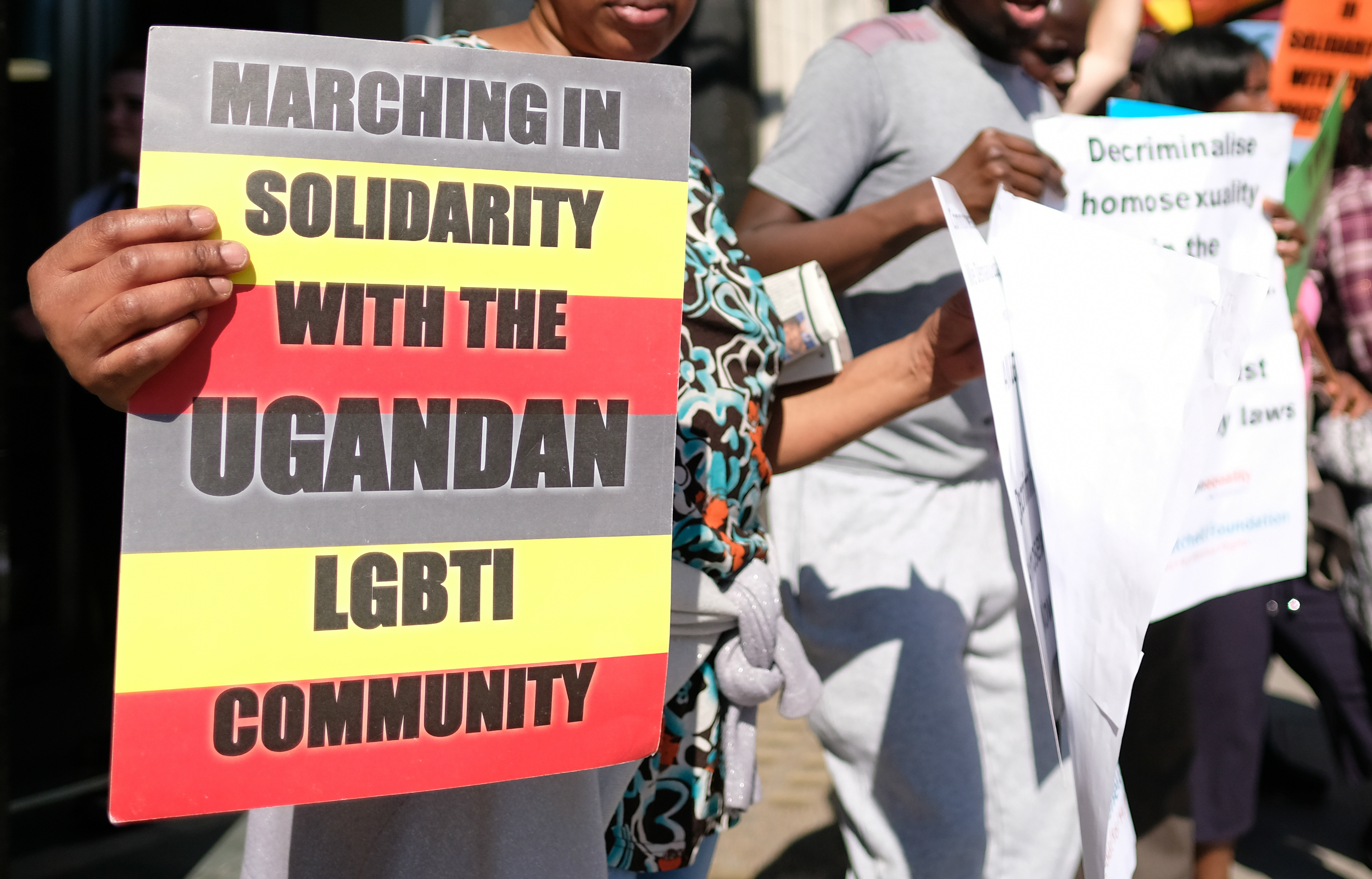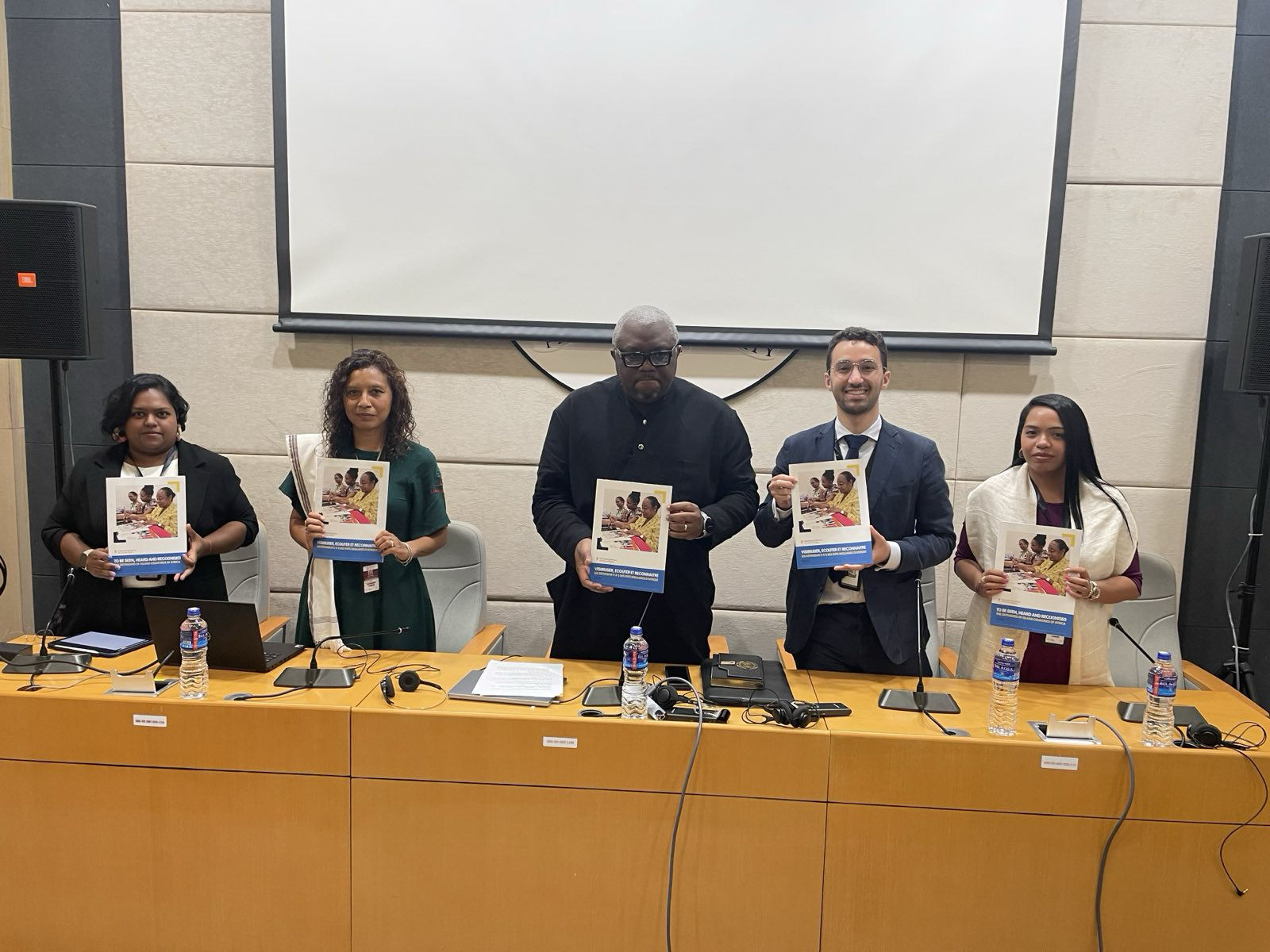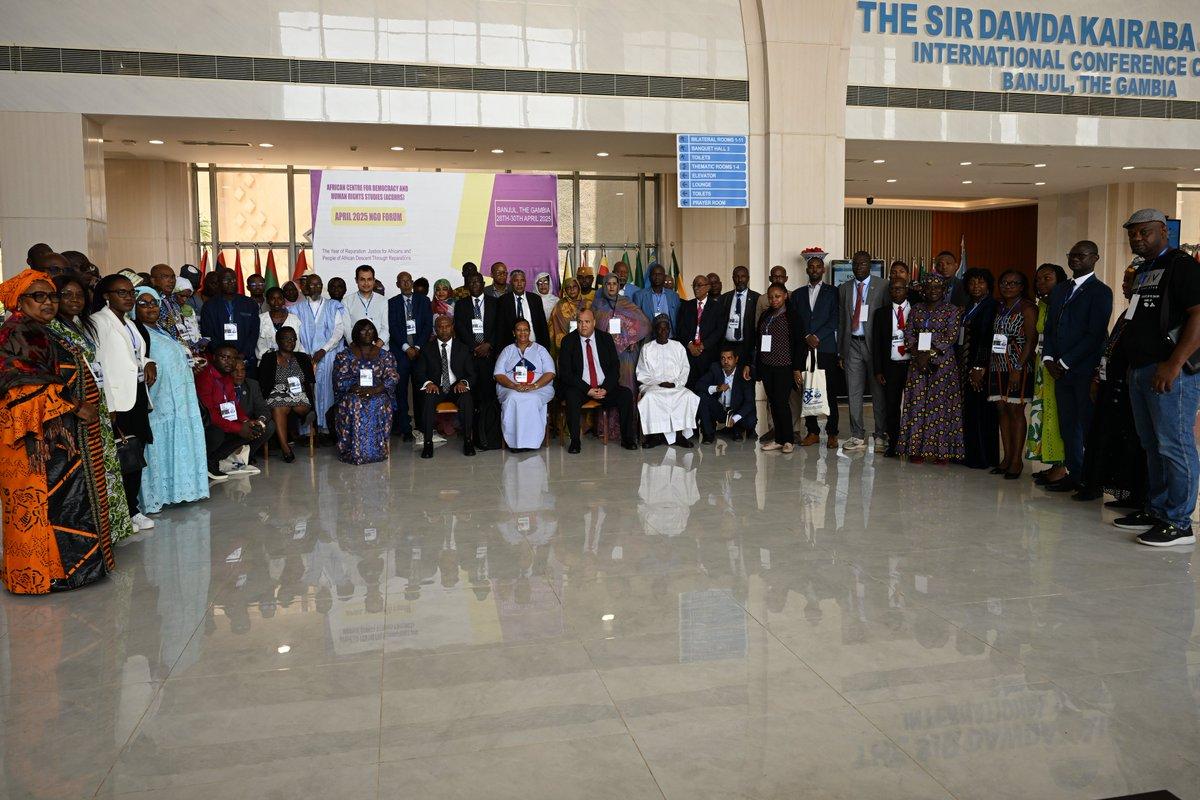On 26 May 2023, Uganda’s president enacted one of the harshest anti-LGBTQ laws. While same-sex relations were already illegal in Uganda, as in 64 countries, the new bill goes much further and includes life imprisonment for a person convicted of the ‘offence of homosexuality’ and even the death penalty for a person convicted of ‘aggravated homosexuality’, including the transmission of HIV through same-sex relations with children and disabled people.
Critically, the bill criminalises human rights defenders promoting and supporting the rights of LGBTQ people as it prohibits ‘aid[ing], abet[ting], counsel[ling] or procur[ing] [of] another person to engage in acts of homosexuality’. It also assesses that ‘any legal entities such as media and non-governmental organisations that “knowingly” promote homosexuality will incur a fine and a potential suspension’. This bill imposes severe restrictions on LGBTQ organisations in Uganda and aims at criminalising and shutting down defenders’ work. ‘Uganda’s actions to enact a bill criminalising people for being who they are and preventing defenders from doing their jobs allows for the systematic violation of many fundamental human rights and prevents defenders from adequately promoting and protecting human rights’, said ISHR’s Tess McEvoy.
Fortunately, progress has been made at the international level to fight discrimination, even though much remains to be done. CEDAW’s recent decision ruled that Sri Lanka violated the rights of an LGBTQ activist by criminalising same-sex intimacy between women and urged Sri Lanka to decriminalise consensual same-sex sexual conduct. However, Uganda’s bill bitterly reminds us of the crackdown on sexual minorities and civil society globally. It also emphasises the fact that while sexual orientation and gender identity (SOGI) are protected under international human rights law, violations often go unaddressed, especially when committed by governments.
Unsurprisingly, the bill is contrary to several international and regional human rights instruments ratified by Uganda. The International Covenant on Civil and Political Rights (ICCPR) demands freedom from torture and other cruel, inhuman or degrading treatment or punishment, freedom of thought and expression, privacy, home and family life as well as equality and non-discrimination; the International Covenant on Economic, Social and Cultural Rights recognises the inherent dignity and the equal and inalienable rights of all, while the African Charter on Human and People’s Rights puts emphasis on respect for everyone’s life, integrity and dignity. ‘Uganda ratified many international and regional human rights treaties and is bound to respect the inherent dignity, privacy and inalienable rights of all, which it is not doing by enacting this bill. It must immediately repeal this law as well as respect and comply with its human rights obligations’, said Tess McEvoy.
Download as PDF




